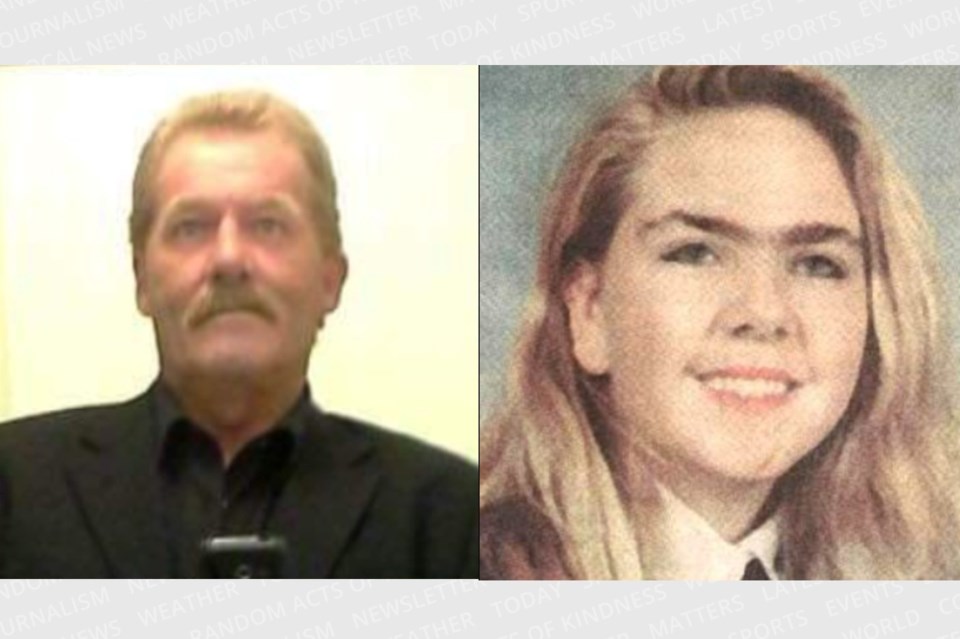A Barrie man charged in a historic killing has been ordered to stand trial on second-degree murder, but has no date scheduled for trial.
Robert MacQueen was originally charged with first-degree murder two years ago in connection with the 1994 killing of Katherine Janeiro.
Following a preliminary hearing in December, he was ordered to stand trial on second-degree murder. He is scheduled to appear before an Ontario Superior Court justice again later this month, but no specific date has been set for trial.
The body of the 20-year-old mother was found on Oct. 10, 1994 in her Dunlop Street West apartment, near Anne Street. Her two-year-old daughter had been visiting her grandparents at the time.
Police have previously said Janeiro suffered multiple stab wounds and succumbed to her injuries prior to being found in her basement apartment by friends.
Janeiro’s death went unsolved for nearly three decades.
On Jan. 13, 2021, Barrie resident Robert Bruce MacQueen, then 58, also known as 'Bruce Ellis', was charged. Police at the time said new information had come to light about a year earlier.
Police have said Janeiro and McQueen knew each other, but did would not elaborate on the extent of the relationship.
Back in 1994, Barrie police began an investigation with assistance from the Ontario Provincial Police's Forensic Identification Bureau. After an extensive and exhaustive investigation, the case was turned over to the OPP in October 1999 in order to utilize an unspecified investigative technique that was beyond the scope of Barrie police at that time.
Unfortunately, police have said this technique didn't yield any results that would advance the investigation or point toward a suspect.
In February 2012, the investigation was turned back over to city police.
During the course of the investigation, Barrie police detectives also obtained witness statements and collected numerous pieces of physical evidence.
According to the Janeiro case file on the police department's website, they had also worked with the Centre of Forensic Science to re-examine some of the existing evidence "in light of scientific advancements in forensic analysis that have been made over the years."
Investigators have also sought opinion from experts in various investigative and scientific fields, including DNA analysis and DNA mixtures, both in Canada and the United States. These investigative procedures and techniques enabled investigators to eliminate certain persons of interest.
According to news reports published by the former Barrie Examiner, Janeiro's body was found lying on the floor, covered in blood with scratches on her face. She'd been at a pair of downtown bars most of Sunday night and early Monday morning prior to her body being discovered. Her death may have been the result of a robbery.
Janeiro's telephone had also been stolen from the crime scene. In March 1995, only a week after police announced they were looking for the phone, it was found in a creek not far from the murder scene. Its memory was intact, but police said it brought investigators no closer to finding her killer.
Janeiro left home at age 16 and moved to Barrie. A year later, she gave birth to a baby girl. About 10 months prior to her death, Janeiro had moved into the Dunlop Street apartment with her toddler.
Her parents, Dinora and Fernando Janeiro, who had spoken to Examiner reporters about their daughter's murder, have both since passed away. Dinora died May 18, 2012, in Toronto, followed by Fernando on Jan. 19, 2014, also in Toronto.
Katherine grew up on a quiet street in a middle-class neighbourhood. She was the Janeiros' only child.
In a story published in the Examiner on Oct. 14, 1994, Dinora says: "She was so smart, happy and fun. A good heart and soul. All that for nothing."




